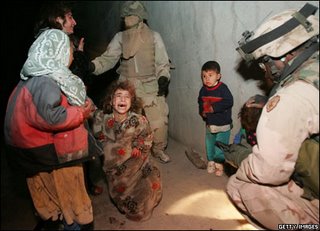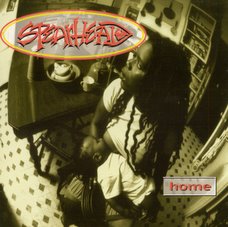

I’ve been an advocate for veterans receiving the necessary care for PTSD since before this series of wars began. I have a personal stake in it. I went years with all the symptoms of either a psychotic and anti-social man or someone who was experiencing the after effects of being in combat.
Unfortunately, my wife and kids paid the price as well. Between the angry outbursts and the attempts to off myself, they became the secondary victims of PTSD. It’s no mistake or nothing unusual both my kids became addicted to cocaine. There’s no surprise in all the emotional upheavals they faced growing up.
When I finally started treatment, I’d been out of combat over 12 years but could vividly see each bit of the Tet Offensive I was part of in my dreams or my intrusive thoughts. I had constant flashbacks. I had two lives. The life before Vietnam and the life after Vietnam. One day I was 18 entering Vietnam…a year and a month later, I was some 40 year old man in the body of a 19 year old.
I worked to educate people about PTSD, once I understood it. Before the most recent war, I asked two brothers who had been in Vietnam to visit a peace and justice group to talk about the troops returning once war started. We spoke about Vets4Vets and setting up free community therapy.
The group loved our ideas but we never heard back from them. Two years after the war had begun and many suicides and homicides later, a church allowed me to put on a full day seminar about PTSD for community members.
It was well received by the 25-30 who showed up on short notice. We talked about other seminars or talks.
Since that time I’ve had many discussions with groups wanting to do something but feeling PTSD doesn’t have much community appeal like an Iraq veteran or an Iraq woman might have.
Now, it’s been proposed we do a “fun run” for PTSD. Maybe a carb dinner the night before. We should invite regular community members, churchgoers and people outside the peace community. They propose we keep away from “radical” advertising in the community.
Basically, I’m being asked to do a seminar on the issue of combat PTSD without mention of my affiliations with veteran peace groups.
The day after I received this proposal, I read of the military sending unfit soldiers and Marines back into combat situations. These men and women were struggling with PTSD symptoms but because of the needs of the military to carry out the mission of fighting they were cleared for duty by commanders having the last say over the recommendations of mental health experts.
The leading Army mental health expert acknowledges the use of antidepressants by soldiers in a combat zone to treat the PTSD symptoms. She admits the military mission takes precedence over any personal consideration. And, amazingly, she feels field commanders are very aware of mental health issues and make good decisions before sending a soldier back into combat.
The alleged expert admits the suicide rate has dramatically risen but says it’s hard since everybody has a weapon over there.
Others in the mental health community deplore the use of antidepressants in such a situation because as the medicine lifts the energy level of the patient it increases possibility of carrying out suicide or homicide.
The military refuses to allow the enlistment of anybody struggling with PTSD but seems to have little problem with redeploying soldiers and Marines with combat induced PTSD.
I’ve been preaching we can pay the price now in treating the trauma of returning vets as soon as possible or we’ll treat it later in the form of increased suicide, homicide, crime, spouse abuse, child abuse, addiction, homelessness, joblessness, poor adaptive skills, poor impulse control, incarcerations and a litany of other problems that will affect all of us.
Over and over I hear the issue isn’t one of those issues that will draw a crowd to listen to someone about interventions, prevention, treatments and awareness of PTSD.
We don’t want to make it too serious. We don’t want to upset. We need to make it fun. We have to avoid radical statements to appeal to an audience.
I have to say this denial of peace and justice groups to the epidemic symptoms of trauma that will occur begins to grind on me. I look at my grown children, still struggling from the effects of my toxic world following Vietnam and I fear another generation of kids damaged like them.
It angers me to hear the bullshit arguments about how we should present the issues mentioned to the community. The same community that fails to look up when a wife is killed in some military base by a returning veteran of combat. The same community that cares more about the American Idol than the suicide of the neighbor son or daughter who had been to Iraq or Afghanistan.
Isn’t it about time the American people got jolted with the effects of the war on another generation of the young sent to an immoral war?
Fuck fun runs and avoiding radical commentary. I understand the rationale but I have no patience for this kind of deception. Let’s not admit we work for a veterans group that wants peace. Let’s hide who we are….No, I don’t think so.
We need to demand treatment for the American veterans and for their families. We need to heighten the awareness of this problem without deception. There’s no sugar coating what will happen without treatment.
We have to wake up to that reality. And then we need to address the PTSD of Iraqi children, innocent men and women and all who have been affected by our preemptive and illegal wars.
I think it’s time to quit with evasive behaviors and time to assert and advocate in a radical way for the troops struggling with PTSD.
Terry Leichner, RN (Psychiatric Nurse Specialist)
VVAW













No comments:
Post a Comment